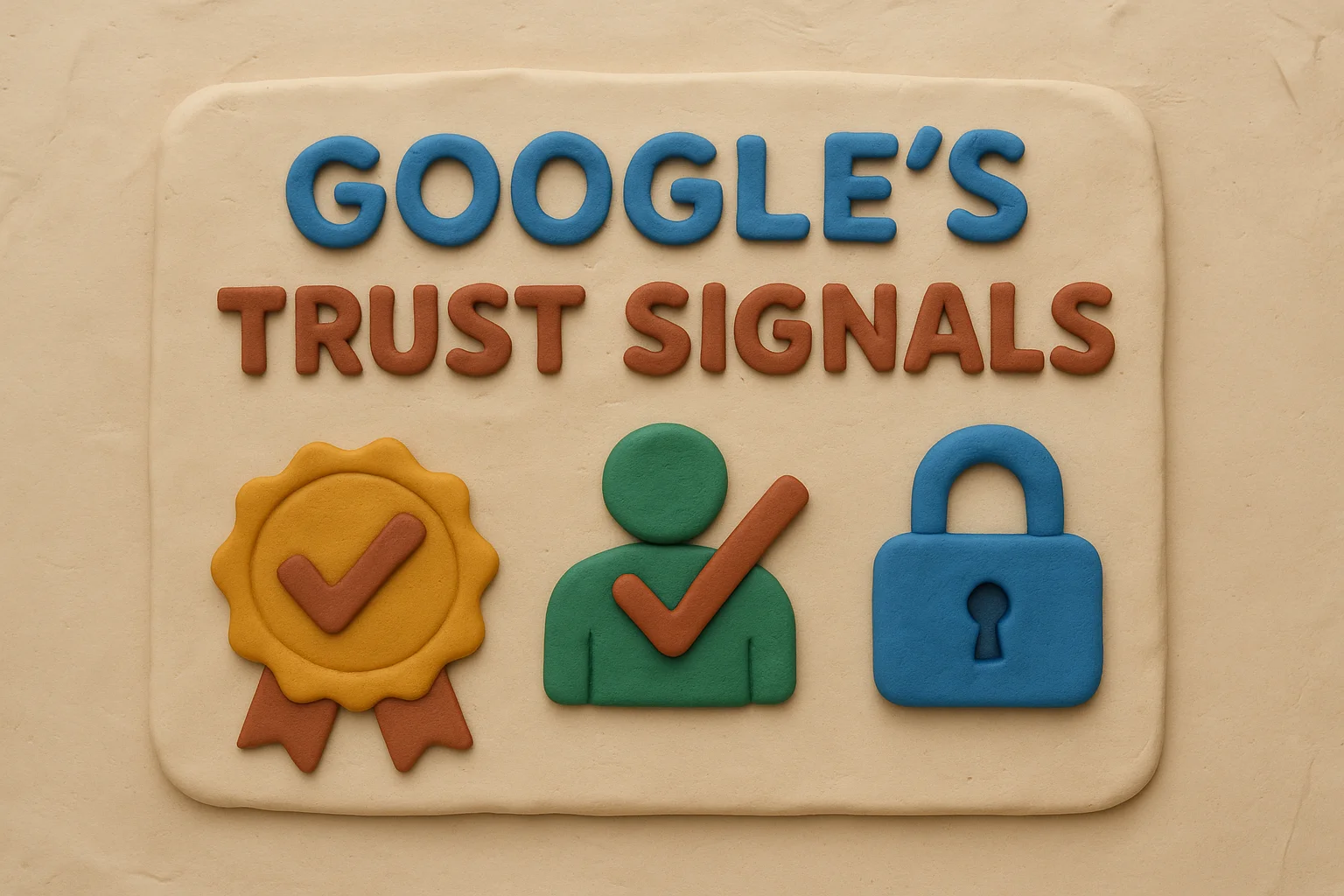You’ve optimized your content, built backlinks, and followed all the SEO best practices—yet your rankings still aren’t where you want them. If that sounds familiar, there’s a good chance you’re overlooking one of the most critical aspects of modern SEO: trust signals.
Enter E-E-A-T—a concept that underpins Google’s approach to evaluating content quality and credibility. In this guide, we’ll break down what E-E-A-T means, how Google uses it to assess websites, and how you can improve your trust signals to boost your visibility and authority.
What Is E-E-A-T?
E-E-A-T stands for:
- Experience
- Expertise
- Authoritativeness
- Trustworthiness
Introduced in Google’s Search Quality Evaluator Guidelines, E-E-A-T helps Google determine whether content is reliable, credible, and created by someone qualified to speak on the topic.
In short, E-E-A-T is how Google evaluates trust signals—and trust is the foundation of modern SEO.
Why E-E-A-T and Trust Signals Matter
Google wants to surface helpful, reliable content—especially in YMYL (Your Money or Your Life) industries like finance, health, and legal services.
When your site demonstrates strong trust signals, Google is more likely to:
✅ Rank your content higher
✅ Feature your content in snippets or FAQs
✅ Consider your site a reliable authority
✅ Reduce the chance of drops after algorithm updates
The 4 Pillars of E-E-A-T (and How to Improve Each)
1. Experience
Google wants to know: Was this written by someone who has real-life, first-hand experience with the topic?
Examples of experience signals:
- Case studies or personal insights
- “Tried-and-tested” language
- Original product reviews
- Behind-the-scenes content or tutorials
✅ How to improve:
Include first-hand commentary, real-world examples, or author bios that highlight personal involvement.
2. Expertise
Expertise refers to the author’s knowledge or skill on the topic, especially in technical or regulated industries.
How to show expertise:
- Author credentials or bios
- Professional certifications
- High-quality, accurate content
- Guest contributions from recognized specialists
✅ How to improve:
Use author schema, publish bylines, and keep content factually accurate and up to date.
3. Authoritativeness
Authority is about your reputation in your niche. Do others reference you? Do you show up consistently across platforms?
Authority signals include:
- Backlinks from reputable sites
- Mentions in media or industry blogs
- High-quality guest posts
- Speaking engagements or citations
✅ How to improve:
Start with our guide: Backlink Building 101: Quality Over Quantity
4. Trustworthiness
This is the most important of all trust signals. Google wants to protect users by sending them to sites that are safe, transparent, and honest.
Trust signals include:
- HTTPS security
- Clear contact info and privacy policy
- Transparent authorship
- Customer reviews and testimonials
- Accurate product/service descriptions
✅ How to improve:
Add About, Contact, and Terms pages. Feature customer reviews. Ensure accurate, honest copy.
How Google Evaluates Trust Signals
While E-E-A-T is not a direct ranking factor (like page speed or backlinks), it strongly influences Google’s Search Quality Raters, who help train the algorithm to recognize high-quality, trustworthy content.
Google is also increasingly leveraging AI to evaluate context, consistency, and credibility across your site.
Real-World Ways to Improve Your Trust Signals
Here’s how you can boost your E-E-A-T across your website:
| Action | Benefit |
|---|---|
| Add author bios with credentials | Increases expertise + trust |
| Include client logos or certifications | Builds authority |
| Use schema markup (Article, Person, Organization) | Helps Google understand context |
| Keep content updated and fact-checked | Shows experience + trust |
| Get listed on reputable directories and sites | Boosts authority |
| Encourage and respond to customer reviews | Strengthens trustworthiness |
How Twofold Helps You Strengthen Trust Signals
At Twofold, we help brands not only rank higher—but earn long-term trust with their audience and with Google.
Our SEO and content strategies are built to strengthen your E-E-A-T through:
✅ Author strategy and structured bios
✅ Content optimization for clarity, accuracy, and trust
✅ Technical SEO and site health improvements
✅ Backlink building and digital PR
✅ Conversion-optimized UX that reflects credibility
Let’s Build an SEO Strategy Google Actually Trusts
Final Thoughts
In 2025, SEO isn’t just about keywords—it’s about trust. Google is getting better at identifying credible content, and if your site lacks strong trust signals, your rankings (and traffic) will suffer.
E-E-A-T gives you the framework. It’s time to put it into action.
